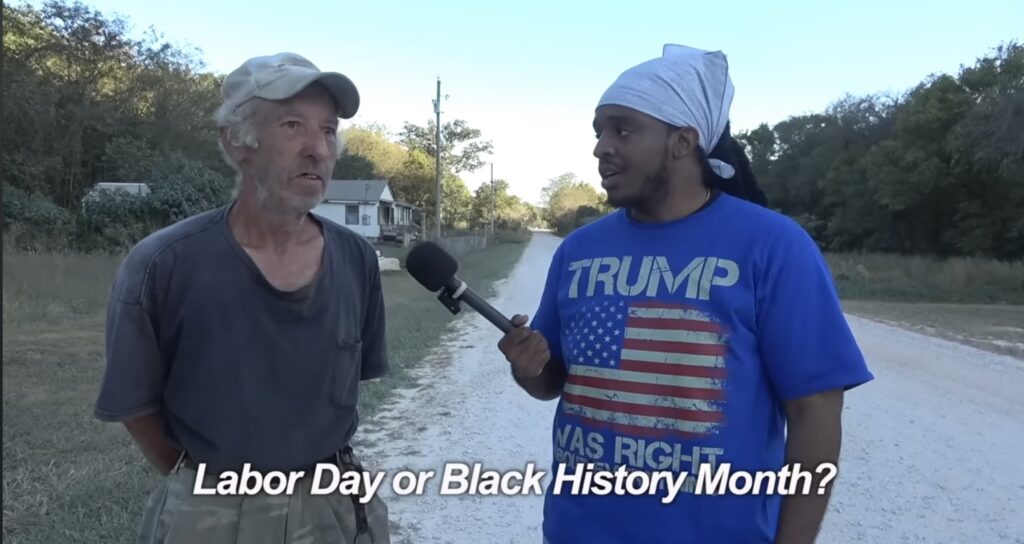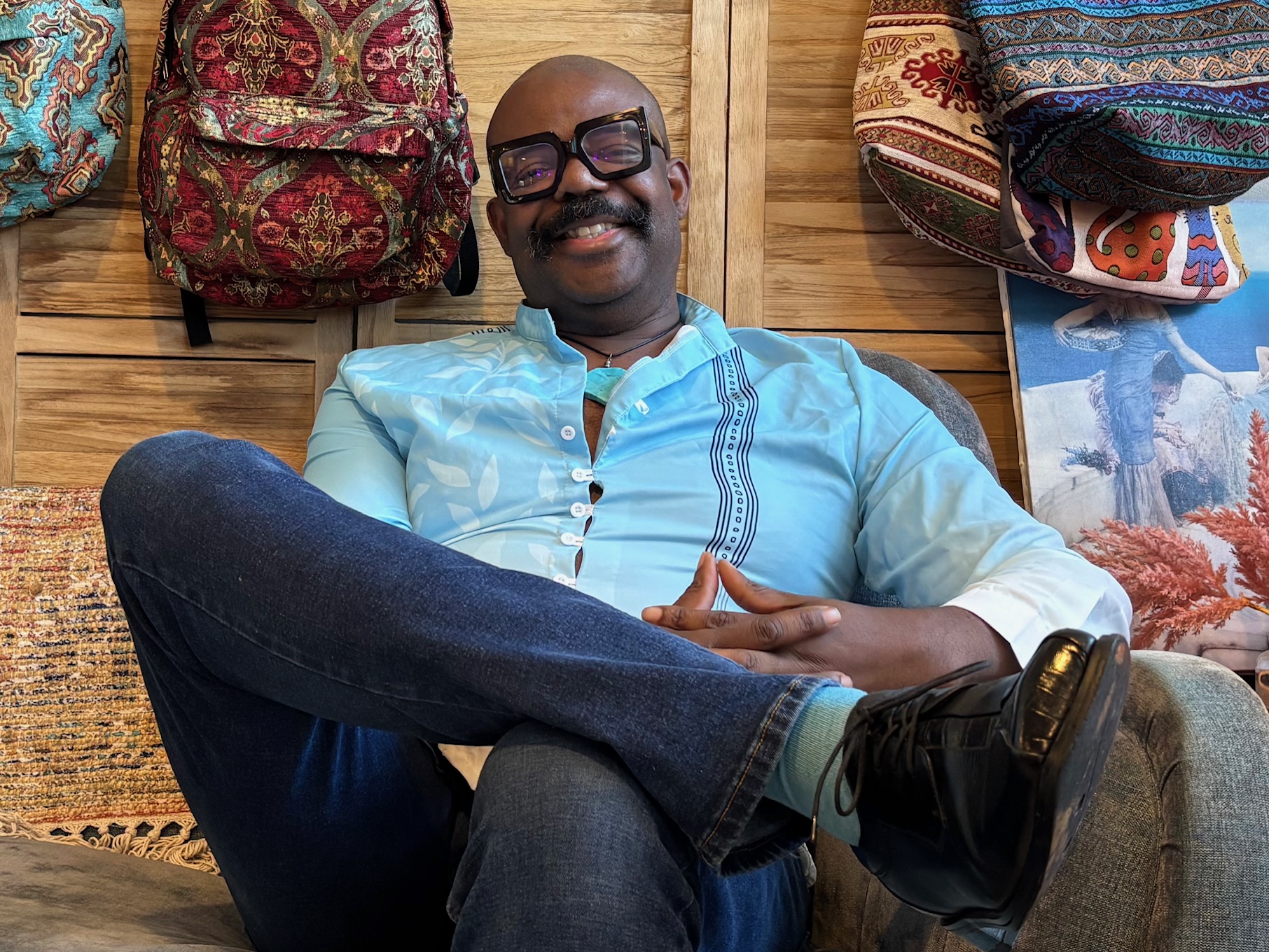(HOUSTON) — In today’s digital era where content creators continuously seek audience attention, Patrick Oudii, popularly known as “Poudii,” emerges as a distinctive voice. Through a blend of storytelling and journalism, he challenges the conventional narratives of digital media. With a following in the millions and notable videos like “For $500, ‘Act Black’ in America’s Most Racist Town,” Poudii navigates the blurred lines between influencer and journalist, inviting us to reconsider the scope of modern digital journalism.
Poudii’s content, where entertainment and journalism seamlessly converge, serves as a testament to his innovative approach. His fearless return to Zinc, Arkansas, despite initial resistance, and viral sensations like “If You Had To Eliminate One Race What Would It Be” (1.5 million views), “Interviewed New York City’s Most Insane People” (1.6 million views), “For $500, Act White” (1.7 million views), and “Sneaking Back Into America’s Most Racist Town” (6.1 million) highlight his boldness.
What sets Poudii apart is his unwavering commitment to ask questions to anyone, regardless of their race or background. His interviews, though direct and sometimes uncomfortable, encourage candid conversations that traverse racial boundaries. For instance, in one memorable moment, he asked an interviewee to choose between himself and a white rock, prompting an unexpected response, “the rock serves more purpose.” These instances illustrate how Poudii employs an entertaining persona to create a safe space for dialogue. His interviews, featuring unconventional questions like “dinner with Jay-Z or $500,000?” or “Black History Month or Labor Day,” challenge conventional wisdom and reveal the complexity of societal issues.
Poudii’s influence transcends the confines of his YouTube channel, spilling over into the vibrant discussions of YouTube, TikTok, and Instagram comments sections. It’s a digital forum where opinions range from admiration to deep contemplation. One thoughtful commenter succinctly stated, “This video underscores that even ignorance-based racism doesn’t deter people from finding common ground or showing respect.” Another observer found Poudii’s content “oddly wholesome,” praising the non-judgmental dialogues he fosters with individuals who hold differing opinions.
While journalists and Poudii share a resistance to easy definition, his unconventional approach may raise questions about journalistic integrity if he were a traditional journalist. Notably, he often records interviews without obtaining explicit consent from his subjects, leading to situations like his ejection from a Walmart. This ethical gray area raises concerns about privacy invasion and the potential harm faced by interviewees and bystanders. Since Poudii’s viral video that garnered 6 million views, other YouTubers have ventured to Zinc, Arkansas, seeking to replicate his content, highlighting the ripple effect of his work.
Poudii’s work serves as a thought-provoking prism, reshaping our understanding of racism and personal beliefs. His interviews reveal a different facet of racism, where interviewees’ opinions, while diverse, seldom descend into outright rudeness. This prompts us to contemplate whether some instances are manifestations of genuine racism or simply reflections of personal beliefs. As one commentator aptly posited, “We are conditioned to categorize people’s preferences as racism, much like our choices between apples and oranges; we all get to choose.” Poudii’s approach challenges viewers to question their own biases and preconceptions, fostering a culture of self-reflection.
In wrapping up our exploration, Poudii’s work exerts an undeniable allure that transcends traditional boundaries, redefining how we engage with digital media. In an era where storytelling converges with societal reflection, Poudii offers a unique blend of entertainment and journalism that resonates deeply. His influence extends far beyond the confines of a screen, sparking conversations and challenging preconceptions.
As Poudii continues his digital journey, his unconventional style questions established norms and encourages essential dialogues. In an era where journalism and entertainment frequently intersect, Poudii serves as a compelling reminder that impactful journalism can manifest in unexpected and thought-provoking forms. Whether one applauds his methods or critiques them, there’s no denying the profound impact he has made in the realm of digital storytelling. His work acts as a testament to the ever-evolving landscape of digital media, where innovation and boundary-pushing narratives continue to captivate and challenge our perceptions.


